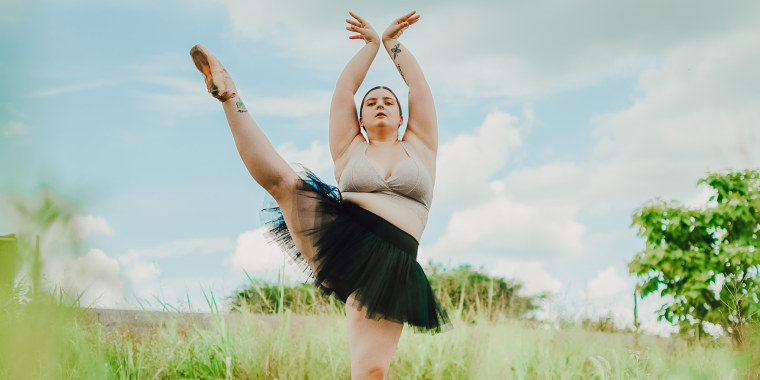The expectations of what a ballerina should look like — graceful, elegant, skinny — were perfectly clear to Colleen Werner when she was young.
"I first dieted when I was 10 years old," Werner, 24, told TMRW. "I found a Weight Watchers book in my living room."
Two years earlier during a routine physical, her pediatrician had advised her to "eat more salads."
"It was the first time I really questioned my body," Werner said. "I started to notice a disconnect between my size and (those of the) other dancers. When I would go see professional performances or look in dance magazines, there was no one who looked like me."
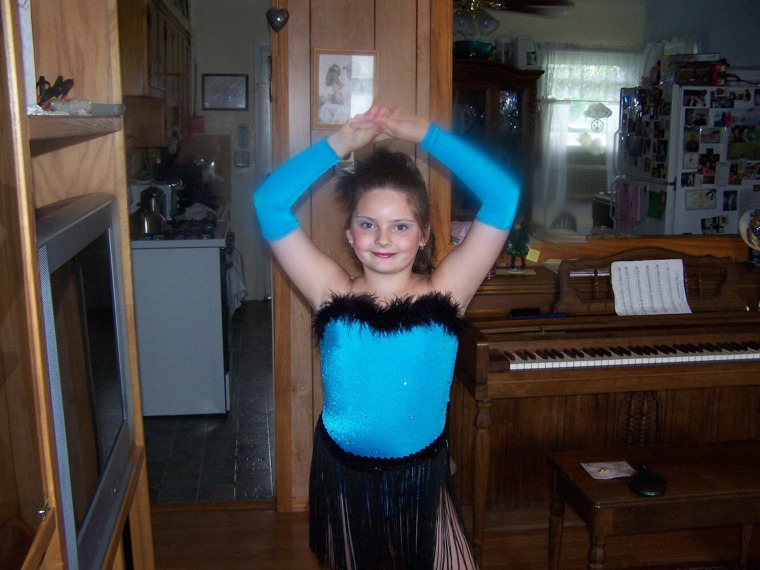
Werner developed an eating disorder that lasted for years. Eventually, she stopped dancing entirely. But today she is back at the barre as a dancer for Black Sheep Ballet, a virtual ballet company that fellow ballerina Brian Syms formed during the COVID-19 pandemic.
Werner and Syms are part of a small but growing movement to make ballet more inclusive and prove that high-level, professional ballet is not reserved for one body type, gender or race.
"In the Black community, a lot of people don't understand ballet, but that's mainly because we've kind of been left out of it," Syms, 22, told TMRW. "It's been seen as a Eurocentric dance form for so long. People in my community are like, 'That's white people stuff.' It's programmed into everyone to think it's not an option for us."
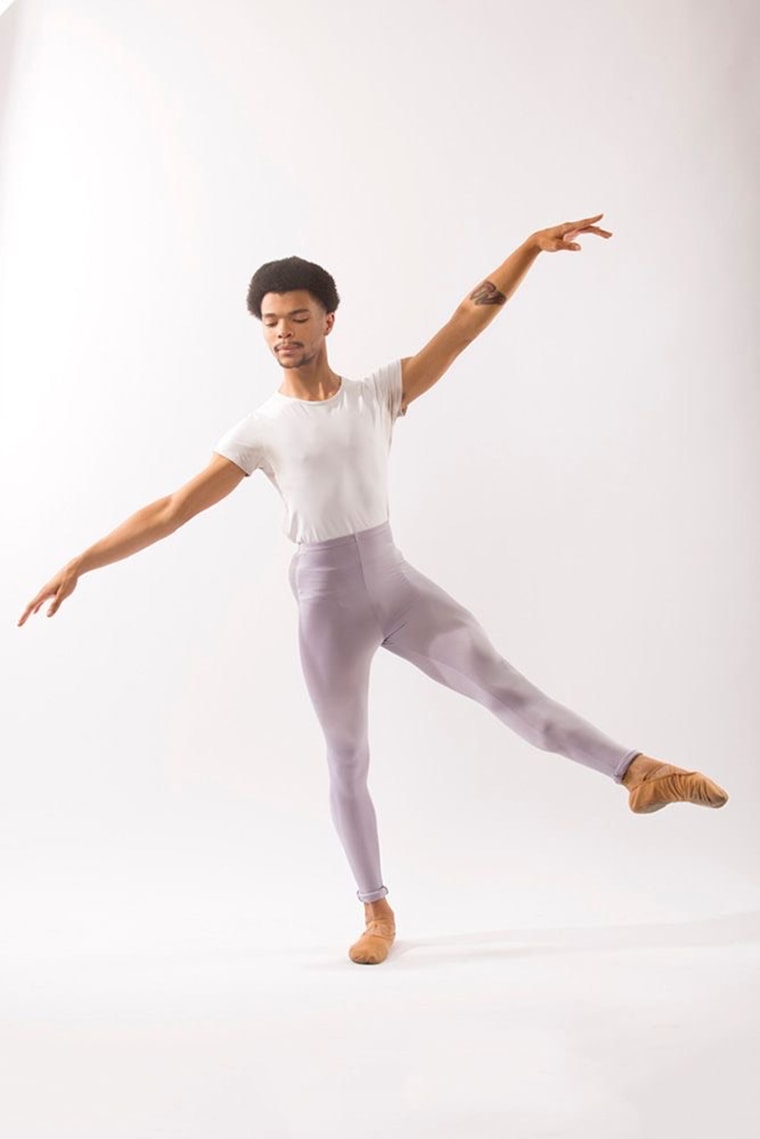
Werner is a graduate student and therapy intern in Nashville, Tennessee. Her goal is to one day create an eating disorder treatment program specifically for dancers. (Dancers are more likely than the general population to have an eating disorder; one study found that they affect 16.4% of ballerinas.)
Her own recovery was a slow process, made more difficult by the mixed messages she received. Even as Werner realized she had an eating disorder, she also found herself getting better roles and more compliments.
"I didn't think it was a problem because everyone was like, 'You look great,'" she said. "Meanwhile, I was constantly lightheaded. I was exhausted. My body was weak."
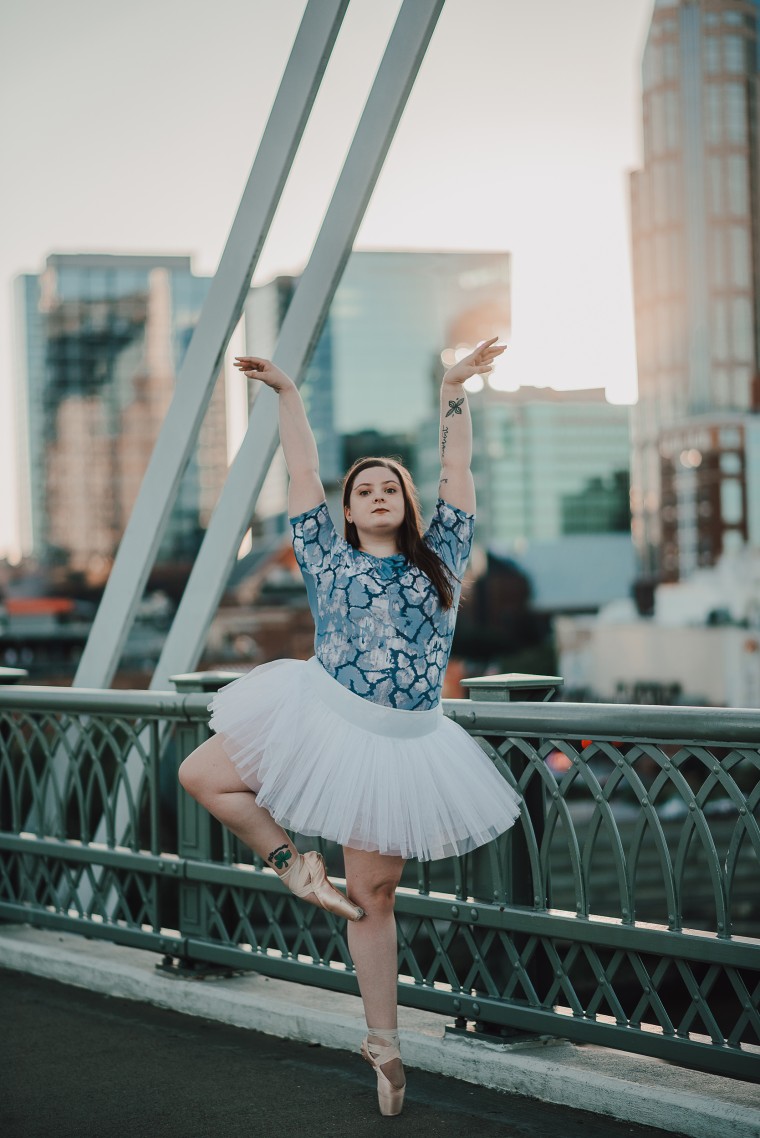
Werner began therapy. She switched her college major from dance to psychology. And she took a break from ballet.
"It was really hard because my body shifted a lot — because I was nourishing my body, and my body is naturally meant to be larger," she said.
On Instagram, where Werner has nearly 40,000 followers, she shares personal stories about her own struggles with mental health alongside beautiful videos and photos of her standing en point in a blue tutu, for example.
In fact, that's how Syms, a professional ballerina in Hartford, Connecticut, found her. Now they spend weekends together — virtually, of course — along with the handful of other members of Black Sheep Ballet, rehearsing for their debut performance this spring. They begin with a 90-minute ballet class, led by Syms, followed by two hours of rehearsal.
"It's a commitment," he said. "We're all lined up at our barres or our countertops. It's just going to be a bunch of learning choreography, putting our heads together, figuring out how we can deliver the most professional work with what we have together at home."
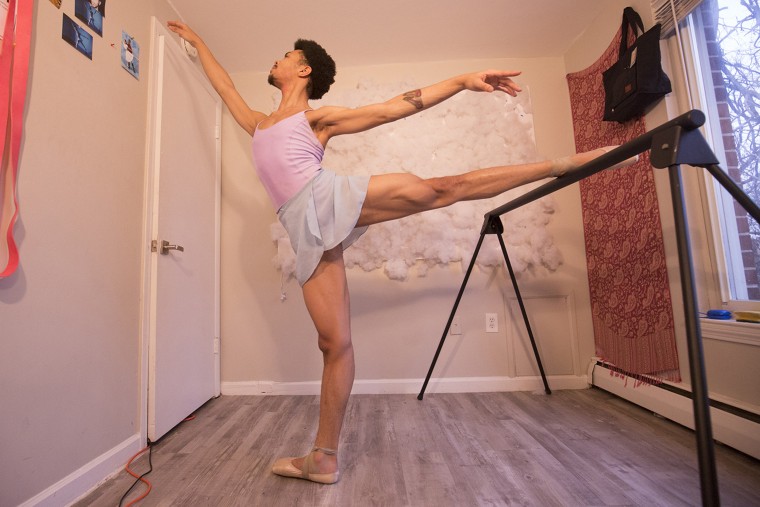
Syms, a dancer for the New England Ballet Theatre, came up with the idea for a virtual dance company at the beginning of the pandemic, after admiring how creative other performing arts companies had been in creating beautiful, virtual work. He envisioned a space for dancers who are often excluded from other dance spaces, especially ballerinas.
"So often I've seen people pushed away from classical dance for things they couldn't control," he said. "If you can professionally execute the work, then you have a place with us."
Their first official performance will likely be in April, although they're also rehearsing for a virtual fundraising gala in March. They'll perform both classical and original works, Syms said, although he's still figuring out what that will look like — whether the audience will see multiple boxes on their screen or if he'll splice together snippets from each performer's feed, for example. The goal is to figure out how to make a virtual performance feel just as special as going to the ballet in real life. Yet even when theaters and venues reopen, Syms believes that there will still be a place for virtual performances.
After all, the goal of Black Sheep Ballet is diversity, and that goes beyond the dancers themselves. Syms sees his company as a way to bring ballet to the masses.
"Ballet is inaccessible to so many audiences," he said. "I had never seen a full ballet on stage when I was younger, and it's something that I really could have benefited from."
It's too expensive for many people, he points out, so their performances will be donation-based.
"I hope that Black Sheep is able to reach the people I want it to — the little boys or little girls like me somewhere who might not feel like this is an option for them," Syms added. "Because everyone deserves to be represented. Everyone deserves to follow their dreams."
